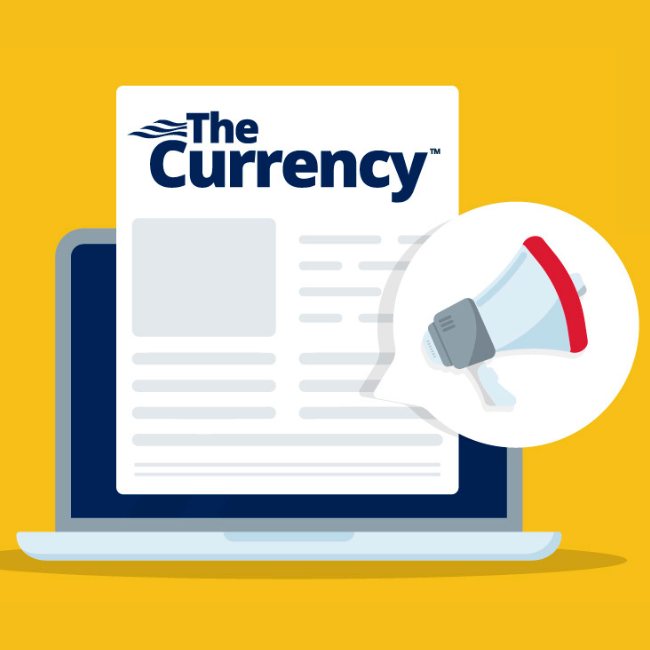How emotions and mood influence financial behavior
How emotions and mood influence financial behavior
How emotions and mood influence financial behavior


Listen
·Financial literacy often brings to mind budgets, investments, and market headlines. But beneath the spreadsheets and strategy is something just as powerful: psychology. The way people think and feel has a surprising amount of influence over the financial decisions they make.1
Even with all the data in the world, emotions can still manage to sneak into financial decisions. As financial author Morgan Housel explains, it’s impossible to predict every risk in investing — there will always be surprises, and emotions often play a big role in how people respond to them.2
Market drops can stir up strong emotions
When the economy contracts or markets get shaky, emotions tend to run higher. Behavioral finance research shows that uncertainty can lead to heightened anxiety, impulsive decisions, and a tendency to act without all the facts.3
In times of financial stress, the brain can actually start to shift gears. Instead of relying on the prefrontal cortex — the part of the brain that handles planning and rational thinking — activity may move to the amygdala, the center that processes emotions. That switch makes people more likely to react on instinct. Fear and anxiety take over, and short-term decision-making can be made under pressure. This shift increases the likelihood of reactive behavior, as fear and anxiety take over and people become more susceptible to short-term decision-making.4
Fear of missing out could lead to impulsive behaviors
Not all market-driven emotional responses are negative. The fear of missing out, or FOMO, is documented in both consumer behavior and investing psychology.5 When markets are rising or new trends dominate the headlines, the emotional trigger isn’t fear of loss, but fear of missing out on something big.
The same emotional trigger plays out in everyday investing. When crypto surges or hot stocks hit the headlines, that feeling of being late to the party can kick in.6 Fear can show up on the other side, too — especially during downturns. Market selloffs can spark panic selling, driven by short-term emotion instead of long-term thinking.7 Acting fast might feel like taking control, but could leave behind regret.
Decision-making blind spots
It’s not just feelings — it’s behavioral patterns. Personal decision-making styles that can lead to blind spots such as overconfidence.8 Being sure doesn’t always mean being right — especially when it comes to not focusing on potentially helpful input.
Then there’s anchoring, where a single number or idea becomes hard to shake.9 Sticking to a stock’s original purchase price or fixating on what something “should” be worth can lead to missed opportunities. Spotting these habits early can open the door to smarter, more flexible choices.
Emotions are part of everyday money moves
Moods can drive financial behavior more than most realize.10 Stress can lead to impulse spending or hesitating to invest at all. Confidence can fuel bold choices — sometimes too bold. Even subtle shifts in mood can show up in spending, saving, or splurging.11
Emotions don’t need to be erased from financial decisions — they just need the right seat at the table.12
Get financially happy
Put your money to work for life and play
1 Psychology Today, “How Emotions Impact Your Financial Decisions,” March 2024
2 Barron's, “’Psychology of Money’ Author Morgan Housel on the Secret to Good Investing,” August 2023
3 SSRN, “Fear, Greed, and Financial Crises: A Cognitive Neurosciences Perspective,” October 2011
4 SSRN, “Fear, Greed, and Financial Crises: A Cognitive Neurosciences Perspective,” October 2011
5 CNBC, “Generative AI ‘FOMO’ is driving tech heavyweights to invest billions of dollars in startups,” March 2024
6 CNBC, “Bitcoin is up 131% this year—but don’t let crypto FOMO ‘drive you to do something stupid,’ says behavioral finance expert,” December 2024
7 The Wall Street Journal, “How to Ride a Market Selloff: Manage Your Emotions,” August 2024
8 Harvard Business Review, “What Are Your Decision-Making Strengths and Blind Spots?” August 2022
9 The Decision Lab, “Why do we compare everything to the first piece of information we received?” Accessed April 2025
10 Psychology Today, “How Emotions Impact Your Financial Decisions,” March 2024
11 Psychology Today, “How Emotions Impact Your Financial Decisions,” March 2024
12 Psychology Today, “How Emotions Impact Your Financial Decisions,” March 2024
RO4392596-0425
The content contained in this blog post is intended for general informational purposes only and is not meant to constitute legal, tax, accounting or investment advice. You should consult a qualified legal or tax professional regarding your specific situation. No part of this blog, nor the links contained therein is a solicitation or offer to sell securities. Compensation for freelance contributions not to exceed $1,250. Third-party data is obtained from sources believed to be reliable; however, Empower cannot guarantee the accuracy, timeliness, completeness or fitness of this data for any particular purpose. Third-party links are provided solely as a convenience and do not imply an affiliation, endorsement or approval by Empower of the contents on such third-party websites. This article is based on current events, research, and developments at the time of publication, which may change over time.
Certain sections of this blog may contain forward-looking statements that are based on our reasonable expectations, estimates, projections and assumptions. Past performance is not a guarantee of future return, nor is it indicative of future performance. Investing involves risk. The value of your investment will fluctuate and you may lose money.
Certified Financial Planner Board of Standards Inc. (CFP Board) owns the certification marks CFP®, CERTIFIED FINANCIAL PLANNER™, CFP® (with plaque design), and CFP® (with flame design) in the U.S., which it authorizes use of by individuals who successfully complete CFP Board's initial and ongoing certification requirements.





